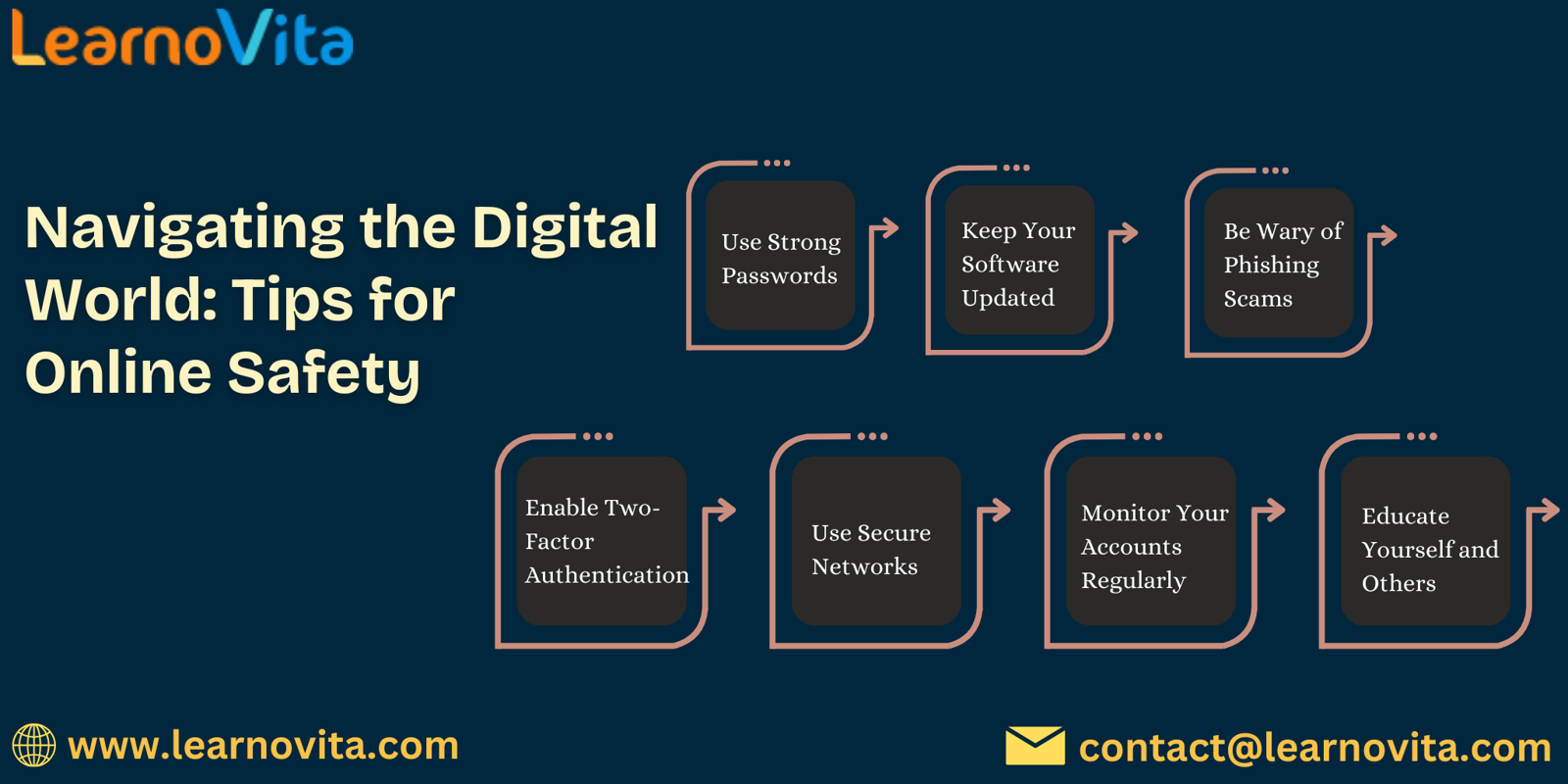In today’s digital age, the internet is an integral part of our daily lives. However, with the conveniences of online access come significant risks. Cybersecurity has never been more critical. This guide will provide practical tips to help you stay safe online.
For those looking to enhance their skills, Cyber Security Training in Bangalore programs offer comprehensive education and job placement assistance, making it easier to master this tool and advance your career.

Understanding Cybersecurity
Cybersecurity refers to the practices and technologies designed to protect your devices, networks, and data from unauthorized access, attacks, and damage. Understanding the basics of cybersecurity is the first step towards safeguarding your online presence.
1. Use Strong Passwords
Why Strong Passwords Matter:
Weak passwords are one of the easiest ways for attackers to gain access to your accounts.
Tips for Creating Strong Passwords:
Use a mix of upper- and lower-case letters, numbers, and special characters.
Avoid using easily guessable information like birthdays or names.
Consider using a password manager to generate and store complex passwords securely.
2. Enable Two-Factor Authentication (2FA)
What is 2FA?
Two-factor authentication adds an extra layer of security by requiring not just a password but also a second form of verification.
How to Enable 2FA:
Check your accounts for 2FA options in the security settings.
Use an authentication app or receive codes via SMS for verification.
3. Be Wary of Phishing Scams
Identifying Phishing:
Phishing scams often come in the form of emails or messages that appear legitimate but are designed to steal your personal information.
Tips to Avoid Phishing:
Always check the sender’s email address for discrepancies.
Avoid clicking on links or downloading attachments from unknown sources.
Look for signs of urgency or threats—these are common tactics used by scammers.
4. Keep Your Software Updated
Why Updates Matter:
Software updates often include security patches that protect your devices from vulnerabilities.
How to Stay Updated:
Enable automatic updates wherever possible.
Regularly check for updates on all your devices and applications.
With the aid of Cyber Security Course in Online programs, which offer comprehensive training and job placement support to anyone looking to develop their talents, it’s easier to learn this tool and advance your career.

5. Use Secure Networks
Understanding Secure Networks:
Public Wi-Fi networks can be breeding grounds for cybercriminals. Always be cautious when connecting to these networks.
Tips for Safe Internet Browsing:
Use a Virtual Private Network (VPN) when accessing public Wi-Fi.
Avoid accessing sensitive information or making transactions over unsecured networks.
6. Monitor Your Accounts Regularly
Why Monitoring is Important:
Regularly checking your accounts can help you spot unauthorized transactions or suspicious activity early.
Tips for Monitoring:
Set up alerts for transactions on your bank accounts and credit cards.
Review your credit report annually for any unfamiliar accounts or activities.
7. Educate Yourself and Others
Staying Informed:
Cybersecurity is constantly evolving. Staying informed about the latest threats and best practices is essential.
Ways to Educate:
Follow reputable cybersecurity blogs and news sources.
Share knowledge with friends and family to create a safer online community.
Conclusion
Staying safe online requires vigilance and proactive measures. By following these guidelines, you can significantly reduce your risk of falling victim to cybercrime. Remember, cybersecurity is not just an individual responsibility; it’s a collective effort. Stay safe, stay informed, and enjoy your time online!



Write a comment ...